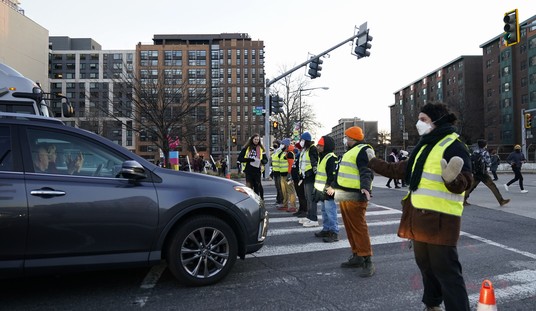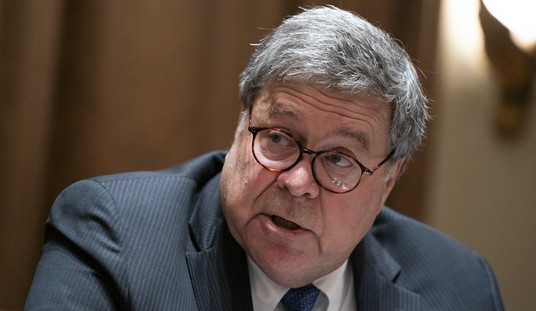President Obama hedged on an ethics question about whether Africans should receive the same experimental drug that put two Americans stricken with Ebola on the path to recovery, telling reporters at the conclusion of the U.S.-African Leaders Summit that efforts to rein in the disease should focus on prevention instead.
But as the epidemic grows within West Africa, the Arab world saw its first possible Ebola death as a businessman in his 40s returning to Jeddah, Saudi Arabia, from Sierra Leone died two days after being admitted to King Fahd Hospital with symptoms of viral hemorrhagic fever.
Saudi Arabia had already banned pilgrims from the affected countries from making the hajj to Mecca. Arab News reported that officials there retraced the businessman’s steps and are now monitoring people he contacted before checking into the hospital.
Two American healthcare workers who were aiding Ebola victims in Liberia were gravely ill before receiving the experimental serum, ZMapp, which had only been tested on animals by San Diego company Mapp Biopharmaceutical Inc. They are now recovering at Emory University Hospital in Atlanta.
“I think we’ve got to let the science guide us,” Obama said at a press conference this evening when asked if the FDA should fast-track approval and perhaps save lives in Africa as well. “And you know, I don’t think all the information is in on whether this drug is helpful.”
Nigerian officials are reportedly interested in acquiring the drug. The doctor who treated American Patrick Sawyer, a Liberian government official who died in the country after flying into Lagos, is now ill with Ebola and eight other cases are confirmed or probable.
The World Health Organization announced today it would convene a panel of medical ethicists next week to discuss if the drug should be used on others and who should receive it.
“We are in an unusual situation in this outbreak. We have a disease with a high fatality rate without any proven treatment or vaccine,” Dr. Marie-Paule Kieny, assistant director-general at the WHO said in a statement. “We need to ask the medical ethicists to give us guidance on what the responsible thing to do is.”
The death toll was 932 as of Monday, according to the WHO tally.
“What we do know is that the ebola virus, both currently and in the past, is controllable if you have a strong public health infrastructure in place. And the countries that have been affected are the first to admit that what’s happened here is that there public health systems have been overwhelmed. They weren’t able to identify and then isolate cases quickly enough,” Obama said. “You did not have a strong trust relationship between some of the communities that were affected and public health workers. As a consequence, it spread more rapidly than has been typical with the periodic ebola outbreaks that have occurred previously.”
“But despite obviously the extraordinary pain and hardship of the families and persons who have been affected, and despite the fact that we have to take this very seriously, it is important to remind ourselves this is not an airborne disease. This is one that can be controlled and contained very effectively if we use the right protocols.”
The Centers for Disease Control and Prevention today announced a “surge” response to the rapidly spreading outbreak.
“CDC now is taking a more active role, and has been invited by WHO to provide leadership on the technical front. The CDC has activated its Emergency Operations Center to its highest response level,” the agency said. Its highest travel warning remains in effect for Guinea, Sierra Leone, Liberia and Nigeria. Fifty additional “disease control experts” will be in the region within 30 days, the CDC added.
“The bottom line with Ebola is we know how to stop it: traditional public health. Find patients, isolate and care for them; find their contacts; educate people; and strictly follow infection control in hospitals. Do those things with meticulous care and Ebola goes away,” said CDC Director Tom Frieden. “To keep America safe, healthcare workers should isolate and evaluate people who have returned from Guinea, Liberia, and Sierra Leone in the past 21 days and have fever or other symptoms suggestive of Ebola. We will save lives in West Africa and protect ourselves at home by stopping Ebola at the source.”
Though Congress is in recess, Frieden will testify tomorrow at a hearing of the House Foreign Affairs Subcommittee on Africa, Global Health, Global Human Rights, and International Organizations.
Obama said “we’re surging not just U.S. resources, but we have reached out to European partners and partners from other countries, working with the WHO.”
“Let’s get all the health workers that we need on the ground. Let’s help to bolster the systems that they already have in place. Let’s nip as early as possible any additional outbreaks of the disease,” he said. “And then during the course of that process, I think it’s entirely appropriate for us to see if there are additional drugs or medical treatments that can improve the survivability of what is a very deadly and obviously brutal disease.”
The president added that the administration would focus “on the public health approach right now because we know how to do that, but I will continue to seek information about what we’re learning with respect to these drugs going forward.”
“If it seems to be effective, would you support fast-tracking its approval in the United States?” a reported asked.
“I think it’s premature for me to say that because I don’t have enough information. I don’t have enough data right now to offer an opinion on that,” he responded, echoing similar noncommittal responses in recent days from administration officials.
A statement at the conclusion of the summit issued by the White House said the leaders in attendance — minus the presidents of Liberia and Sierra Leone, who stayed home to deal with the crisis — “committed to redoubling efforts to control the outbreak of the Ebola virus in West Africa and, critically, working together to share expertise, as Africa moves towards the realization of the African Center for Disease Control and Prevention.”
“This is a — a big problem, as you know,” Defense Secretary Chuck Hagel said at a townhall in Stuttgart, Germany, today when asked if Ebola is on the Pentagon’s radar. “We have to protect our people. And we will. But where we can be of assistance, we will, and we are.”








Join the conversation as a VIP Member